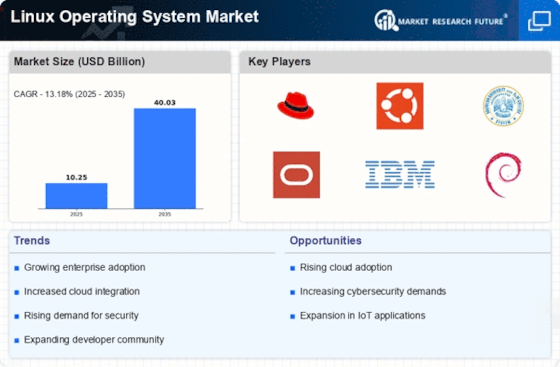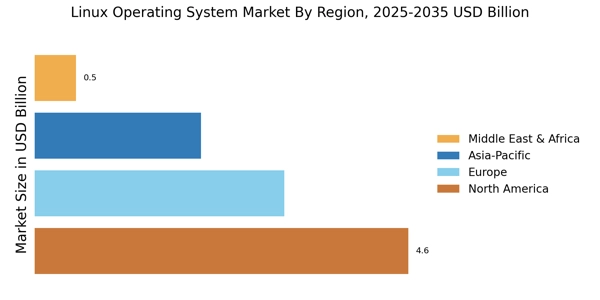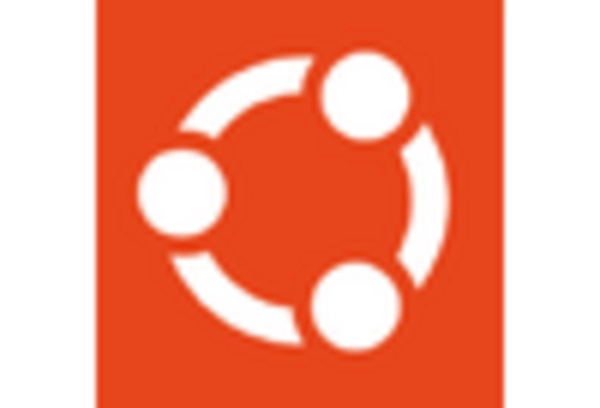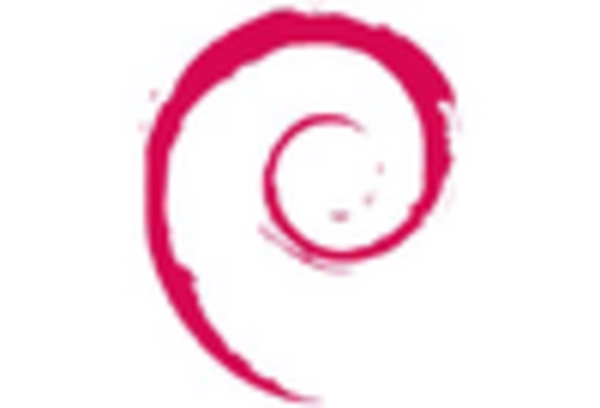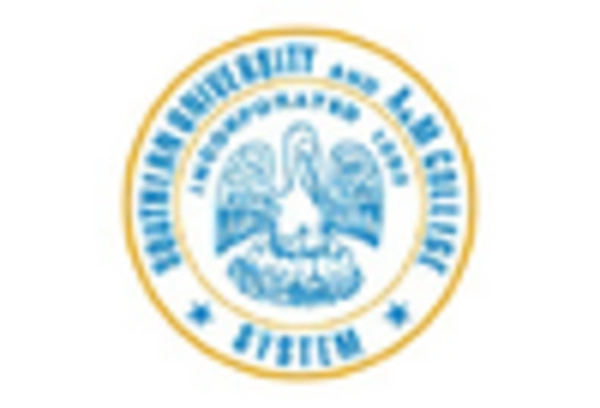Increased Focus on Cybersecurity
The Linux Operating System Market is witnessing an intensified focus on cybersecurity, driven by the rising frequency of cyber threats. Organizations are increasingly adopting Linux-based systems due to their inherent security advantages, such as robust user permissions and a strong community of developers dedicated to addressing vulnerabilities. Recent statistics reveal that Linux servers account for approximately 70% of web servers globally, underscoring their critical role in secure computing environments. As businesses prioritize data protection and compliance with regulatory standards, the demand for secure operating systems like Linux is likely to grow, positioning it as a preferred choice for enterprises seeking to bolster their cybersecurity posture.
Adoption of Linux in Edge Computing
The Linux Operating System Market is experiencing a shift towards edge computing, where data processing occurs closer to the source of data generation. This trend is driven by the need for real-time data processing and reduced latency in various applications, including autonomous vehicles and smart cities. Linux's adaptability and performance make it an ideal choice for edge computing environments. Industry forecasts indicate that the edge computing market could reach a valuation of 15 billion dollars by 2027, presenting significant opportunities for Linux-based solutions. As organizations seek to harness the power of edge computing, the demand for Linux operating systems is likely to increase, further entrenching Linux's position in the technology landscape.
Expansion of Internet of Things (IoT)
The proliferation of Internet of Things (IoT) devices significantly influences the Linux Operating System Market. As more devices become interconnected, the need for robust, scalable, and secure operating systems becomes paramount. Linux, with its modular architecture and strong security features, is well-positioned to support the diverse requirements of IoT applications. Industry reports indicate that the IoT market is expected to reach a valuation of over 1 trillion dollars by 2026, creating substantial opportunities for Linux-based solutions. This expansion not only fosters innovation but also encourages the development of specialized Linux distributions tailored for IoT environments, further solidifying Linux's role in this burgeoning sector.
Growth of Containerization Technologies
The emergence of containerization technologies, such as Docker and Kubernetes, significantly impacts the Linux Operating System Market. These technologies enable developers to create, deploy, and manage applications in isolated environments, enhancing efficiency and scalability. Linux serves as the foundation for most containerization platforms, owing to its lightweight nature and compatibility with various cloud environments. Market analysis suggests that the container orchestration market is projected to grow at a CAGR of over 25% in the coming years. This growth is likely to drive further adoption of Linux-based systems, as organizations increasingly leverage containerization to streamline their development processes and improve resource utilization.
Rising Demand for Open Source Solutions
The Linux Operating System Market experiences a notable surge in demand for open source solutions. Organizations increasingly recognize the benefits of open source software, including cost-effectiveness, flexibility, and community support. This trend is particularly pronounced among small to medium-sized enterprises that seek to minimize licensing costs while maximizing customization options. According to recent data, the open source software market is projected to grow at a compound annual growth rate of approximately 20% over the next five years. This growth is likely to drive further adoption of Linux-based systems, as businesses leverage the advantages of open source technologies to enhance their operational efficiency and innovation capabilities.


